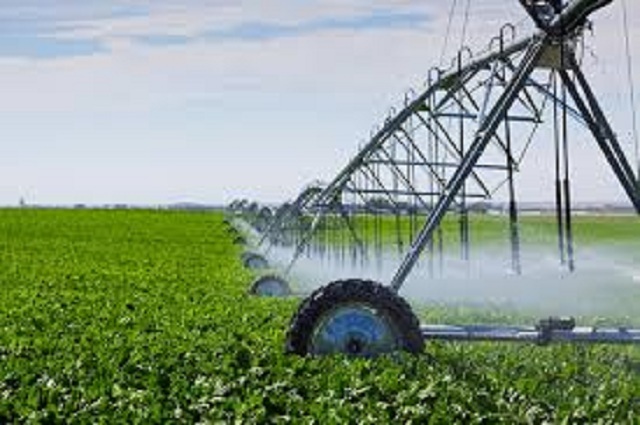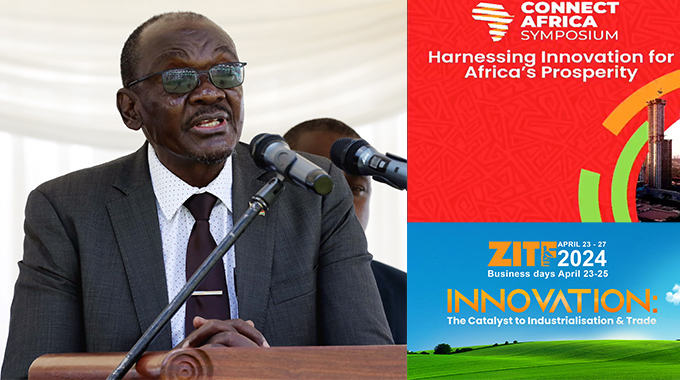Agriculture Column: Robust irrigation schemes the answer

Tapuwa Mashangwa
A RELIABLE and suitable irrigation water supply can result in vast improvements in agricultural production and assure the economic vitality of the region.
Many civilisations have been dependent on irrigation agriculture to provide the basis of their society and enhance the security of their people.
Some have estimated that as little as 15-20 percent of the worldwide total cultivated area is irrigated.
Judging from irrigated and non-irrigated yields in some areas, this relatively small fraction of agriculture may be contributing as much as 30-40 percent of gross agricultural output.
Effective agronomic practices are essential components of irrigated systems.
Management of the soil fertility, cropping selection and rotation, and pest control may make as much incremental difference in yield as the irrigation water itself. Irrigation implies drainage, soil reclamation, and erosion control.
When any of these factors are ignored through either a lack of understanding or planning, agricultural productivity will decline. History is absolutely certain on this point.
Irrigation agriculture faces a number of difficult problems in the future. One of the major concerns is the generally poor efficiency with, which water resources have been used for irrigation.
A relatively safe estimate is that 40 percent or more of the water diverted for irrigation is wasted at the farm level through either deep percolation or surface runoff.
These losses may not be lost when one views water use in the regional context, since return flows become part of the usable resource elsewhere.
However, these losses often represent foregone opportunities for water because they delay the arrival of water at downstream diversions and because they almost universally produce poorer quality water.
One of the more evident problems in the future is the growth of alternative demands for water such as urban and industrial needs.
These uses place a higher value on water resources and therefore tend to focus attention on wasteful practices.
Irrigation science in the future will undoubtedly face the problem of maximising efficiency.
Irrigation in arid areas of the world provides two essential agricultural requirements:
(1) a moisture supply for plant growth which also transports essential nutrients; and
(2) a flow of water to leach or dilute salts in the soil.
Irrigation also benefits croplands through cooling the soil and the atmosphere to create a more favourable environment for plant growth.
The method, frequency and duration of irrigations have significant effects on crop yield and farm productivity. For example, annual crops may not germinate when the surface is inundated causing a crust to form over the seed bed.
After emergence, inadequate soil moisture can often reduce yields, particularly if the stress occurs during critical periods.
Even though the most important objective of irrigation is to maintain the soil moisture reservoir, how this is accomplished is an important consideration.
The technology of irrigation is more complex than many appreciate. It is important that the scope of irrigation science not be limited to diversion and conveyance systems, nor solely to the irrigated field, nor only to the drainage pathways.
Irrigation is a system extending across many technical and non-technical disciplines. It only works efficiently and continually when all the components are integrated smoothly.
Questions that are common to all irrigation systems are when to irrigate, how much to apply, and can the efficiency be improved.
A large number of considerations must be taken into account in the selection of an irrigation system. These will vary from location to location, crop to crop, year to year, and farmer to farmer.
In general these considerations will include the compatibility of the system with other farm operations, economic feasibility, topographic and soil properties, crop characteristics, and social constraints.
There are also external influences that affect the choice of an irrigation system. Conditions outside the sphere of agriculture affect and even dictate the type of system selected.
For example, national policies regarding foreign exchange, strengthening specific sectors of the local economy, or sufficiency in particular industries may lead to specific irrigation systems being utilised.
Key components in the manufacture or importation of system elements may not be available or cannot be efficiently serviced.
The designer, evaluator, or manager of irrigation systems should be aware of the broader setting in which irrigated agriculture functions.
Ignorance has led to many more failures or inadequacies than has poor judgement or poor training.
The writer is Eng. Tapuwa Justice Mashangwa, a young entrepreneur based in Bulawayo Founder and CEO of Emerald Agribusiness Consultancy. He can be contacted on +263739096418 and email: [email protected]












Comments